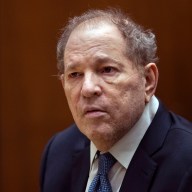More than 600 chiefs of First Nations communities across Canada gather in Calgary tomorrow to choose their national leader, in an election whose outcome will steer the course of Aboriginal and non-Aboriginal relations for the next four years.
The National Chief of the Assembly of First Nations represents all of the 300,755 status Indians living on reserves, and also strives to advocate for the nearly 400,000 living off-reserve, largely in urban centres.
As an advocacy organization, the AFN is in the often difficult role of attempting to give one voice to the myriad views among First Nations communities on vital issues ranging from poverty alleviation to economic development, land claims, the legacy of residential schools and self-government.
That single voice — even if it cannot possibly represent all Aboriginal views — is the one the federal government hears. That’s why the top job matters.
Shawn Atleo and Bill Wilson, both from British Columbia, Saskatchewan’s Perry Bellegarde, Ontario’s John Beaucage and Manitoba’s Terrance Nelson are all vying to be the ninth chief to lead since the AFN was founded in 1968.
“The national chief sets the tone of the relationship between Aboriginal Peoples and Canada,” says David Newhouse, the chair of indigenous studies at Trent University in Peterborough.
That’s also the reason style is as crucial as substance when it comes to a national chief.
Previous leaders have ranged from those favouring a confrontational approach to others prepared to work within the system, governed by the much-maligned Indian Act.
The federal government doesn’t always want to hear what the AFN has to say, but it ignores the organization “at its peril,” points out Newhouse, a Mohawk from Six Nations of the Grand River. Governments have had to back down from critical pieces of legislation because they couldn’t win AFN support.
The next leader also carries the critical responsibility of ensuring the AFN is relevant for the next generation of First Nations youth — their numbers are growing at a rate 31/2 times faster than that of the general Canadian population.















